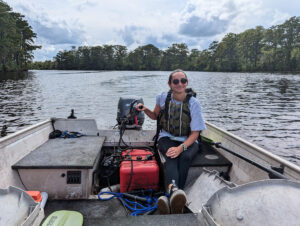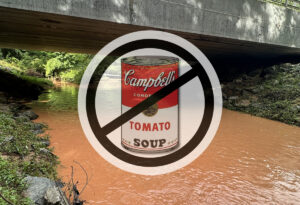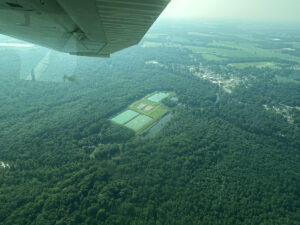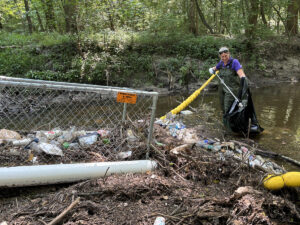News

By Heather Deck, Pamlico-Tar Riverkeeper
The proposed Atlantic Coast Pipeline (ACP) is an interstate natural gas transmission pipeline in Virginia and North Carolina. If constructed, the ACP will be owned, constructed and maintained by the Atlantic company, which is a partnership of Dominion Power, Duke Energy, Piedmont Natural Gas and Southern Company Gas. The ACP is currently proposed to cross 343 bodies of water in North Carolina, including the Neuse and Tar Rivers, Swift Creek (an outstanding resource water), Fishing Creek, and Little River, to name a few.
Sound Rivers’ three Riverkeepers have participated in public hearings and submitted written comments to the Federal Energy Regulatory Commission (FERC), the lead permitting agency. We note that the draft Environmental Impact Statement clearly lacks sufficient information to adequately assess and understand the true short and long-term negative impacts the construction and maintenance of this pipeline will have on our water supply resources. In addition, the Tar River and Little River in the Neuse watershed house numerous state and federally protected, threatened and endangered species.
The pipeline will impact our water supplies in the following ways:
~ 68 million metric tonnes of climate pollution annually, equivalent to the pollution created from 20 coal plants or 14 million vehicles emisions
~ Encourage more fracking, resulting in greater environmental destruction in the eastern U.S.A. ~Environmental Justice violations; Census data shows a higher percentage of low-income and minority residents live near the proposed route ~ Close to 600 acres of wetlands will be destroyed leading to greater water pollution, more flooding, and loss of wildlife habitat
~The pipeline would burrow beneath six major rivers, 34 water bodies in total, including under waterways that are the drinking water sources for hundreds of thousands of people
~Construction requires withdrawing millions of gallons of water from the Roanoke, Tar, Cape Fear & Neuse rivers
Related News

Riverkeeper monitoring Tar-Pamlico Water Trail
July 25th 2024

Rain ramps up trash-trap cleanouts
July 25th 2024

Riverkeeper, intern take on emergency trash trap cleanout
July 25th 2024

Tar-Pam Riverkeeper investigates Cub Creek turbidity
July 25th 2024

Heavy rains lead to sky-high turbidity on Lick Creek
July 25th 2024

Riverkeeper: What goes up, must come down
July 18th 2024

Greenville’s trash trap gets emergency cleanout
July 18th 2024

Sound Rivers gets close up of cyanobacteria
July 18th 2024

